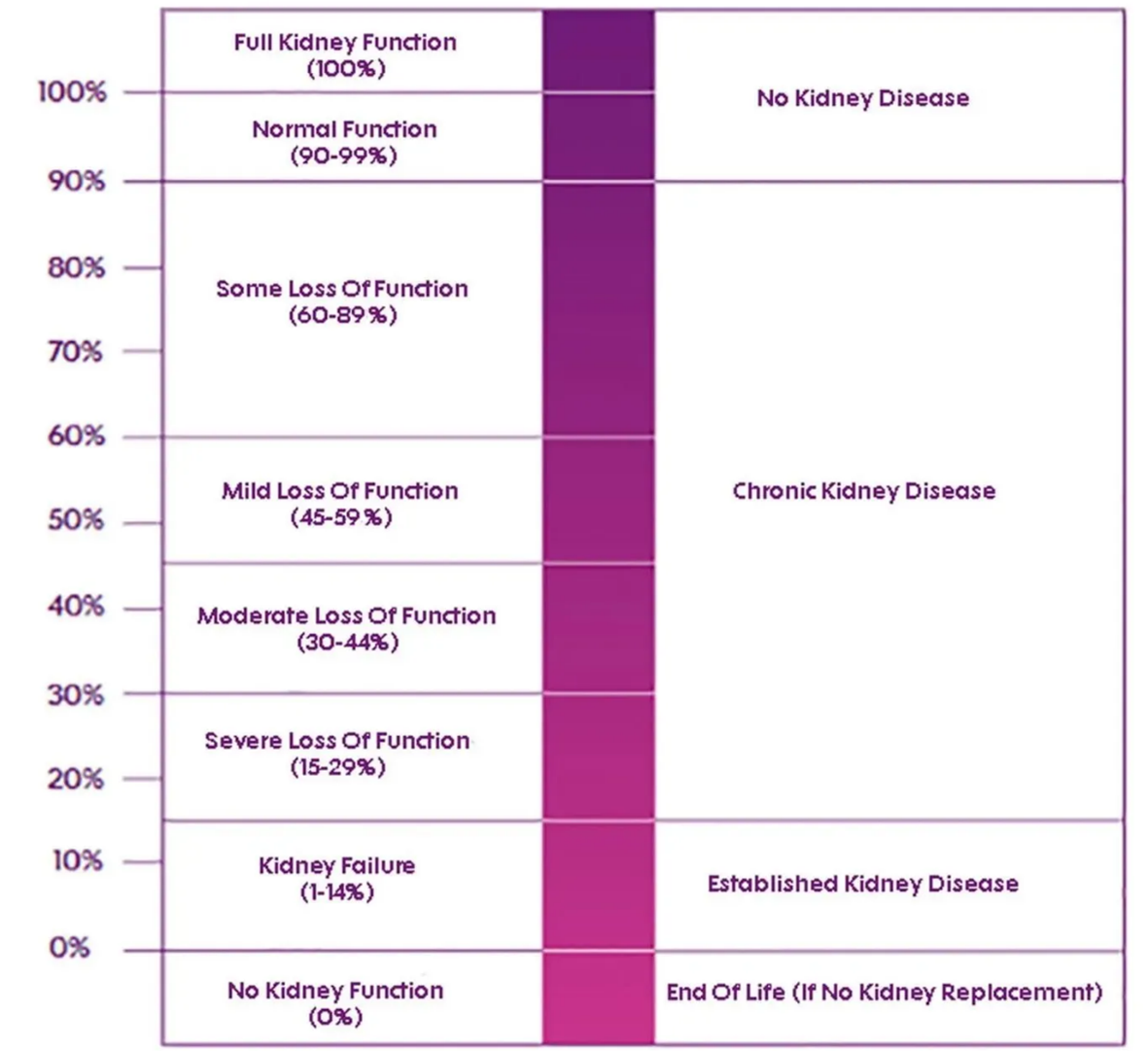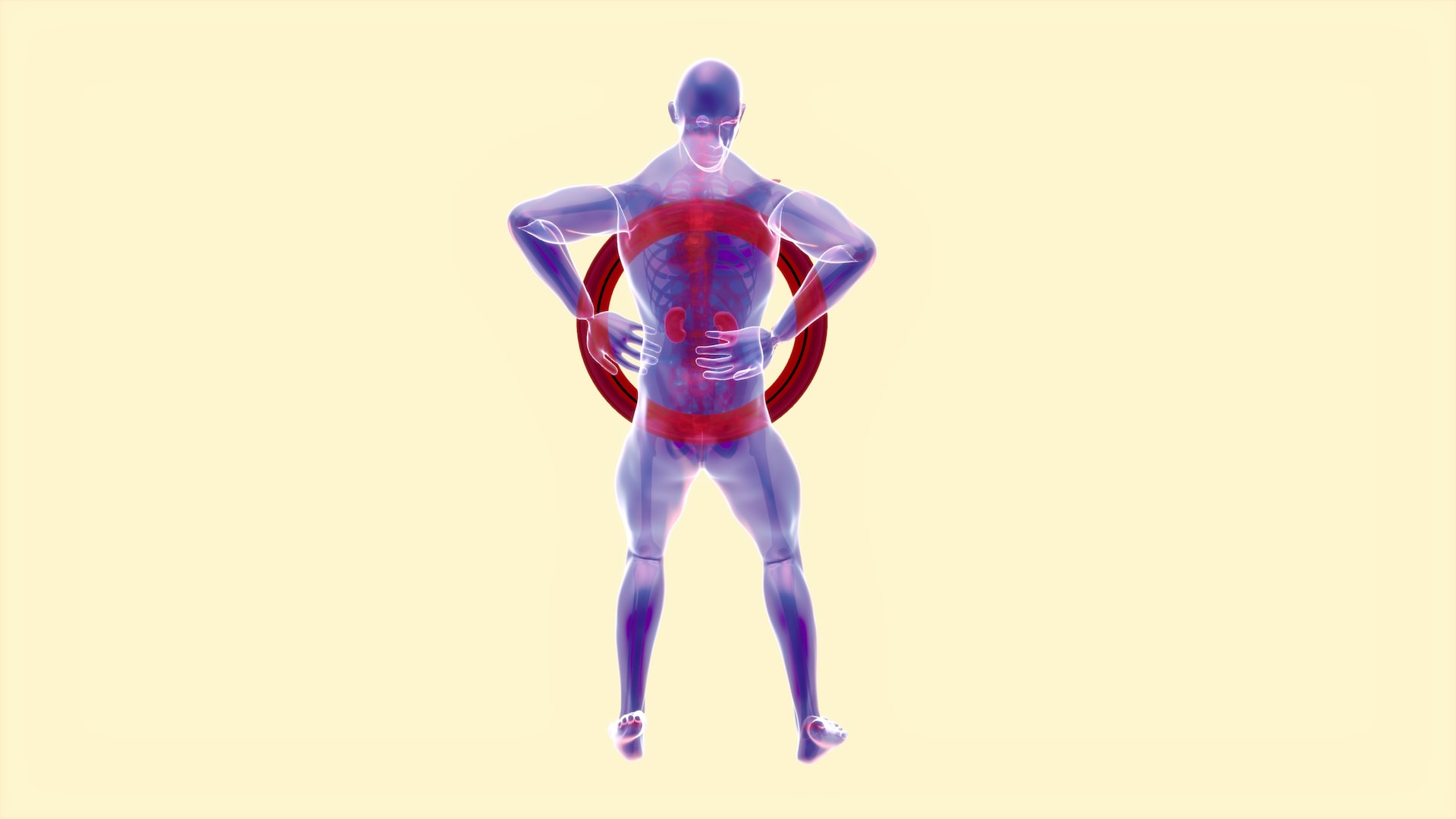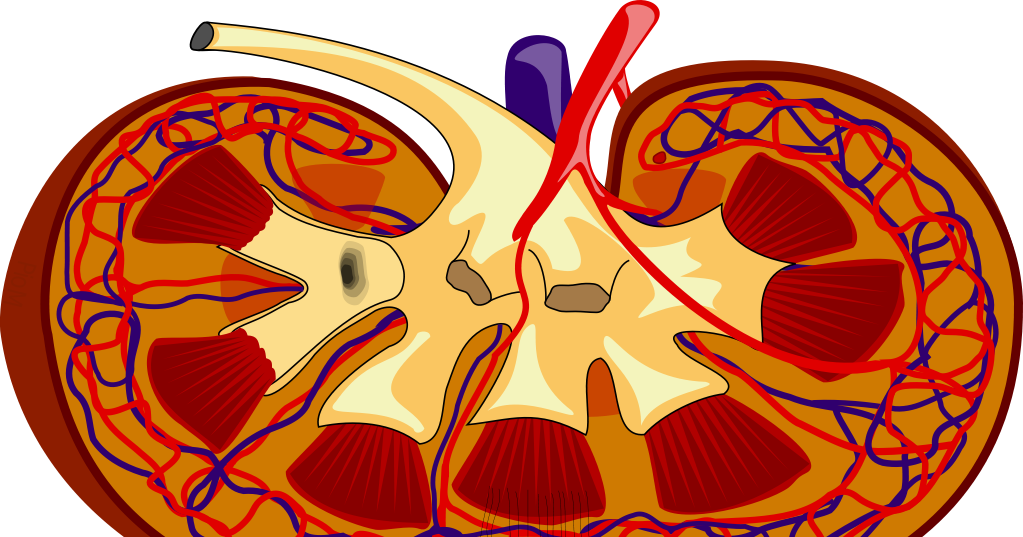Find out more about The Open University's Health and Wellbeing courses.
What is Chronic Kidney Disease (CKD)?
CKD develops overtime and involves abnormalities in both kidneys. There may be a loss of kidney function, with or without other evidence of kidney damage. If CKD progresses, there is a risk that the kidneys will not be able to carry out their normal functions, causing a threat to life. CKD ranges from mild to severe, dependent on the extent of kidney damage.

Globally, there are approximately 10% of the adult population living with some degree of CKD. For most people, the main risk to health and life is heart disease, due to a number of challenges:
- increased stress on the heart, as it must work much harder to get blood to the kidneys
- high blood pressure, which is a risk factor for heart disease
- buildup of toxic waste in the body, because the kidneys are not removing waste effectively and this increases the risk of heart problems and sudden death.
What are the common signs and symptoms of CKD?

In the early stages, there are no noticeable symptoms of CKD. As the disease advances, affected individuals may experience:
- swollen ankles or feet
- frequent urination especially at night
- headaches
- breathing difficulties.
Myths about CKD

1. You know when you have CKD
CKD is a progressive illness that can take months or even years for symptoms to develop. At its mildest, CKD can be almost undetectable, and many people only know that they have the disease when it is at an advanced stage.
2. CKD means that you have kidney failure
Kidney Failure or Established Renal Failure (ERF) is when there is severe kidney damage. At this stage, dialysis, or kidney transplantation is required to preserve life. Although significant, Kidney Failure only affects a small number of people.
3. Acute kidney injury will progress to CKD
Acute Kidney Injury (AKI) is when there is a sudden decline in kidney function. When this happens, the kidneys are unable to remove waste products from the blood. AKI can occur within hours or days but can be resolved completely with prompt treatment. Not everyone who experiences AKI will develop CKD but some do and they need to be monitored closely by medical professionals.
4. CKD cannot be avoided
Prevention is the key to reducing the chance of developing CKD. Key recommendations include, maintaining a healthy weight, smoke cessation, reducing alcohol intake, keeping hydrated, being cautious of over the counter medications and managing existing conditions such as high blood pressure and diabetes.
5. CKD can be cured
Unfortunately, CKD cannot be cured. You can, however, take several important steps to minimise the risk of it progressing to kidney failure. These steps are similar to the prevention recommendations suggested above.
Who is at risk for CKD?

-
People with Diabetes and High Blood; Diabetes alone contributes to approximately 40% of cases of CKD globally.
-
Having other diseases that affects the kidneys, such as Kidney Cancer.
-
People who are 60 years and older as CKD risk advances with age.
-
Individuals from a minority ethnic group e.g. Black African, Black Caribbean or Asian. Researchers think this is perhaps due to higher rates of diabetes and high blood pressure amongst these groups.
-
Those who are obese, have a high alcohol intake or smoke as these factors can cause diabetes, high blood pressure and heart disease.
How is CKD managed?
Management of CKD will depend on the stage of the disease. Key strategies include:
-
Blood and urine tests; these will let healthcare provider know the extent of damage to the kidneys.
-
Follow up appointments with primary care physicians or general practitioners to monitor kidney function.
-
Affected individuals should take all medications as prescribed and report any side effects to their doctor. They should be encouraged to consult their doctor or pharmacist if they are planning to take any over the counter preparations including herbal medicine as some of these can be harmful to the kidneys.
Find out more
 Stages of Chronic Kidney Disease: https://www.kidneyresearchuk.org/kidney-health-information/stages-of-kidney-disease/
courtesy: Kidney Research UK www.kidneyresearchuk.org
Stages of Chronic Kidney Disease: https://www.kidneyresearchuk.org/kidney-health-information/stages-of-kidney-disease/
courtesy: Kidney Research UK www.kidneyresearchuk.org



Rate and Review
Rate this article
Review this article
Log into OpenLearn to leave reviews and join in the conversation.
Article reviews